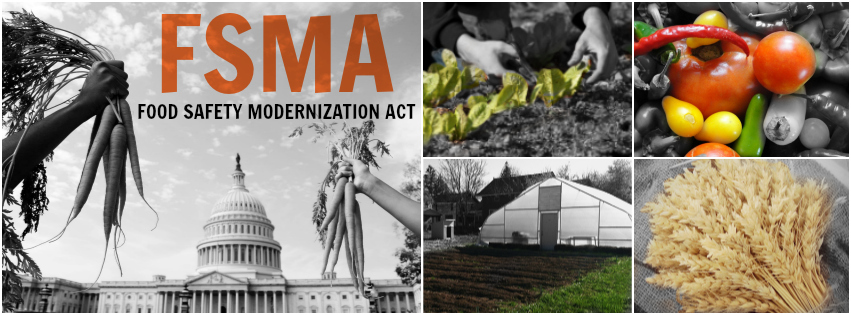
It’s official. On May 27, 2016, the FDA finalized the last rule of the Food Safety Modernization Act (FSMA). Signed into law in 2011, the FSMA safeguards the domestic food supply through preventative measures, replacing the former “react and correct” approach with proactive steps to keep contamination from occurring during manufacturing, transport, and distribution. At 89 pages, digesting the full text of this important law is a bit of an undertaking, so we’ve summarized its six major rules below:
Produce Safety. Setting a universal standard for the wide variety of farms that grow, harvest, pack, and store produce, this rule regulates water quality, soil fertilizers, farm animals, employee health and hygiene, and farm equipment and buildings. The goal is to minimize serious, food-borne illness from contaminated produce.
Human Food Preventative Controls. Updating the 1986 Current Good Manufacturing Practices (CGMP), these controls require registered food facilities to develop and follow a food safety plan, uncover potential hazards, establish preventative measures, and document their safety plan’s effectiveness. This rule also redefines what it means to be a farm, effectively widening the circle to include more non-traditional food organizations and letting fewer food-based hazards slip through the cracks.
Foreign Supplier Verification. Applying domestic standards to foreign food products, the Foreign Supplier Verification Program (FSVP) shifts responsibility for food safety to the U.S. facility that imports the food into the country, regardless of where the end product is manufactured. The rule addresses food for both human and animal consumption, includes risk analysis and preventative controls, and requires written documentation. The U.S. importer must also verify that their foreign manufacturers follow the same, rigorous safety standards. Designed to minimize duplication of efforts, this rule intends to mitigate hazards before the affected food reaches American consumers.
Accreditation of Third-Party Auditors for Foreign Facilities. Also called the Third-Party Certification rule, this part of the FSMA establishes a program that qualifies independent third parties to audit foreign and other food suppliers. Once accredited, third-party auditors will serve the FDA by certifying foreign food suppliers, judging whether their food safety processes, facilities, and food products meet U.S. standards.
Preventative Controls for Animal Food. This rule establishes Current Good Manufacturing Practices (CGMP) for animal food production—which had not previously existed—including food safety practices. Similar to the Human Food Preventative Controls, but with a bit more flexibility, required practices include analyzing food hazards and establishing preventative measures, with an aim to reduce contamination in the animal food supply.
Sanitary Transportation of Human and Animal Food. This seventh and final rule establishes sanitary procedures for parties who transport human or animal food by land, to include product shippers, motor carriers, rail carriers, loaders, and receivers across the supply chain. Practices include adequately cleaning vehicles between shipments, maintaining proper load temperatures, and communicating with other members of the supply chain to keep food-borne illness from spreading. The rule addresses transportation vehicles and equipment, operations, record keeping, and employee training, and applies to both domestic and foreign parties who distribute food to consumers within the U.S.
Now that the FSMA’s rules have become final, shippers must comply or face steep fines, and partnering with the right 3PL can make all the difference. Nebraska Warehouse is well-versed in the FSMA and other food safety legislation, collaborating with manufacturers to meet requirements at both ends of shipments and every step in between.
